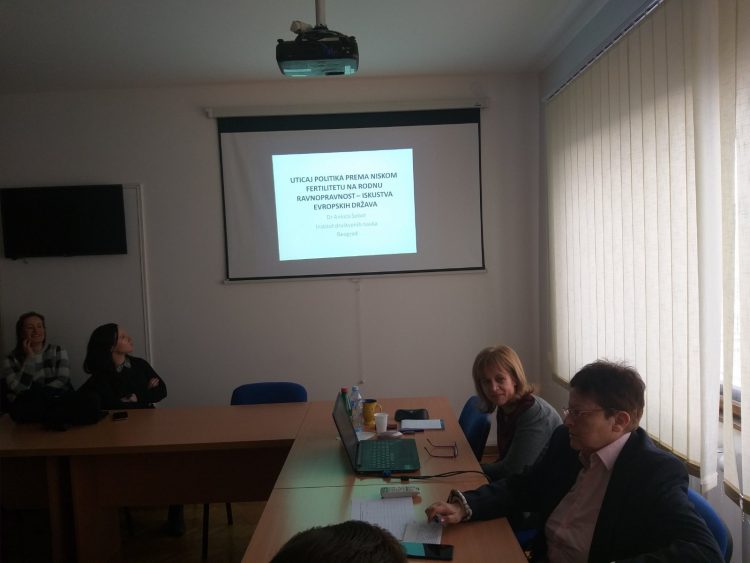Ankica Šobot PhD has delivered a lecture The Impact of Low Fertility Policies on Gender Equality – Experiences of European Countries.
Gender equality and low fertility policies are not necessarily opposed values, but moreover, the high gender equality standards are an important positive framework for policy responses to low fertility. In support of this are cited the solutions of Denmark, France, the Netherlands and the experiences of the Nordic countries where a high fertility rate is achieved. It is therefore necessary to reconcile work and parenting, not to weaken a woman’s position in terms of employment and not to jeopardize her right to a professional life. It is important to individualize the right to parental leave, to develop childcare services tailored to the work of parents, to expand flexible working hours and work from home, the involvement of employers as actors in the implementation of family-oriented measures. Affirmation of a more equal division of roles within the family is also needed.
This requires breaking down gender stereotypes by defining measures in this direction, adapting to contemporary trends in gender roles and the labor market. It is necessary to create a favorable institutional framework for inclusion of men in parenting, to ensure job security, non-threatening financial security of the family, wide availability and high quality care services for preschool and lower primary school children.

